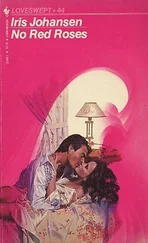Iris Murdoch - An Unofficial rose
Здесь есть возможность читать онлайн «Iris Murdoch - An Unofficial rose» весь текст электронной книги совершенно бесплатно (целиком полную версию без сокращений). В некоторых случаях можно слушать аудио, скачать через торрент в формате fb2 и присутствует краткое содержание. Жанр: Классическая проза, на английском языке. Описание произведения, (предисловие) а так же отзывы посетителей доступны на портале библиотеки ЛибКат.
- Название:An Unofficial rose
- Автор:
- Жанр:
- Год:неизвестен
- ISBN:нет данных
- Рейтинг книги:4 / 5. Голосов: 2
-
Избранное:Добавить в избранное
- Отзывы:
-
Ваша оценка:
- 80
- 1
- 2
- 3
- 4
- 5
An Unofficial rose: краткое содержание, описание и аннотация
Предлагаем к чтению аннотацию, описание, краткое содержание или предисловие (зависит от того, что написал сам автор книги «An Unofficial rose»). Если вы не нашли необходимую информацию о книге — напишите в комментариях, мы постараемся отыскать её.
An Unofficial rose — читать онлайн бесплатно полную книгу (весь текст) целиком
Ниже представлен текст книги, разбитый по страницам. Система сохранения места последней прочитанной страницы, позволяет с удобством читать онлайн бесплатно книгу «An Unofficial rose», без необходимости каждый раз заново искать на чём Вы остановились. Поставьте закладку, и сможете в любой момент перейти на страницу, на которой закончили чтение.
Интервал:
Закладка:
Ann tired herself out each day by with physical work. She lived in exhaustion, unhappiness and muddle as in a now accustomed medium, flopping in it like some creature in the mud. She was still stunned by her own action, stunned partly by the fact of having acted at all. It seemed to her that she had not done such a thing in years. She had become quite unaccustomed to action an-d utterly unaccustomed to reflection upon action; and when she attempted the latter she found herself dreadfully unable to determine what she had done and why. She ought, she felt, to know this. Yet looking with desperate glances back over the expanse of her conduct she could not discern where the actions lay at all or what, amid the general drift, they positively were. She had acted, she had altered the world; but how, why, even when?
Looking back on her last interview with Felix, Ann felt that it had simply been a muddle. Yet deep in the muddle there was, there must have been, some decisive form. What had most struck her, before seeing him, as essential had been her image of Randall returning, Randall searching for her, Randall crying for her, and not finding her. She had been, at this, overwhelmed by a tide of pity and compassion for Randall, a tide she could only in the end say of love for Randall. This feeling. which was in its way blinding and suffocating, seemed to make it impossible for her to say yes to Felix: made it impossible for her to say yes then, and if not then, then not at all, as Felix must not be made to spoil his life by perhaps fruitless waiting.
That much, before he came, had seemed, if not 'clear', at least irresistible. Yet Ann had summoned him. Shoe had not, as she might have done, told him her decision by letter. What could this mean but that there had really been, as yet, no decision? She had perhaps however vaguely relied upon him for a certain hardness, a certain grimness, something that would lend, to the other side, a sense of fatality. She had perhaps half hoped for an exorcism, for the removal, somehow, of that overwhelming image of Randall: to have her view unravelled and shown to be wrong. The interview had seemed to her, she now sometimes thought, while it was going on, like a trial run, like something incomplete, something symbolic, a symbolic sacrifice. She was suffering for Randall; but when she had suffered enough, when both she and Felix had suffered enough, the suffering would end. She would go the whole circle of suffering and at its close she would be able to take Felix in her arms. That was what had driven her on through Marie-Laure, even to her ultimate words of denial.
The utterance of the words of denial had seemed to wake her from a trance, and she had lifted her face to Felix's stricken and stiffened countenance. She had reached the end and had then been ready' to begin the scene again with every difference. Only it was too late. She had not meant the words as Felix had taken them. She had only meant to say everything, to show him everything, the ultimate difficulties, the ultimate problem — and then ask him at one step to solve it all. But the picture, as she had too truthfully revealed it, was too much for him. If he had only seized her when he came in, if he had kissed her, if he had as much as touched her, or if he had at the end simply shouted her down, she felt she must have submitted. If she had only not for that instant tried him with the words of denial everything might have been different. Yet had she not merely and exactly done as she had decided beforehand she would do? And had he not acted as she must have known he would act? It was scarcely a matter of motives. She had had no motives. Her whole life had compelled her. They had each of them their destiny.
It was as if what she had done was plotted on different and incongruous maps, which made it seem to her sometimes that different lines or levels of conduct must have coexisted, and sometimes that what she had really done was some yet other indiscernible thing. She had worked it out, or partly worked it out, that it was her duty to hold to Randall; yet the reasoning of this and the idea of this, though persistently present, lacked clarity. She did not really believe that Randall would come back; nor did she believe that her actions, one way or the other, would affect him any more at all. He would not be oppressed by her faithfulness or released by her lack of it. The cutting of the painter had been an idea that concerned only herself: it was her own freedom only which had been in question. Randall, without further reference to her, was in possession of his. Why then had she not cut the painter? The intoxication of freedom had even come to her, like a helpful attendant spirit, at the due moment. But she had dismissed it.
Here she was bound to reflect upon the notion of the sacrament of marriage which had so authoritatively come up for her in her talk with Douglas. The notion was constantly present to her mind now, but in an utterly inert way. It was like a great lump which she kept turning over but in which she could discern no significant shape. That was something which she had simply not thought out to the end, and she had not done so because she must somehow have realized that it was not essential to her decision. It was not that she had from this derived some decisive command of duty which she now saw, because her poor heart was elsewhere, as an empty form. She could have born this comprehensible 'pain more easily. She suspected she had not been moved by the command of duty at all.
Yet when she tried to see her conduct as determined by emotion, by desire, by a will seeking, however deviously, its own felicity, she could not on those suppositions either make sense of her actions. She had let go of the exceedingly, dear and 'precious Felix whom she loved and needed with all her heart, almost, it seemed to her, because of a naked meaningless incapacity to take what she wanted. Or was it that some other, stronger, emotion had really moved her, some completely mad, even almost corrupt, emotion of sentimental sympathy for Randall? At a certain moment perhaps she had not been able to bear the break with Randall, ignoring the dreadful fact that it had already taken place; and the flood of feeling which had perhaps been fatal to Felix seemed to her indubitably more like some unrealistic haze of sentiment than like the heavenly love desiderated by Douglas Swann. That, unless it was very heavily disguised, she did not feel to be in the situation at all.
Miranda was perhaps the key to the matter; yet had she acted, persuaded by Miranda, for the sake of Miranda? Her daughter had, in some simple terms, reminded her of her duty; yet Ann could only remember having felt, at this reminder, a sort of irritation. But Miranda had certainly shaken her. There had been some terrible accuracy of aim in Miranda's words. And Miranda had helped to set loose that fatal pity for Randall. Perhaps even her cry of ‘I don't want to be a step-daughter! had worked with Ann more deeply than she realized. There was no denying that the child herself was very disturbed at present. Ann had been shocked, and indeed frightened, to hear from Nancy Bowshott that Miranda had broken all her: dolls. Her own failure, after their momentous discussion, to communicate, at all with her daughter left this massacre as something barbarous, fearful and unexplained. Ann yearned to help her child but could not. She grieved to find herself regarding Miranda's presence in the house as almost menacing, a source of strange rays; and if her own decision had indeed been 'because of' Miranda she still could not in the end see quite why.
She could not see her actions. But the pain of their results, the pain of loss, was overwhelming and with a dreadful separate quality of its own. It was as if she were perpetually haunted and mocked by a music of happiness which came from some inaccessible elsewhere. It was the sheer beauty of love which at such times she apprehended and at such times felt herself to have criminally betrayed; and what she had denied would not let her rest, coming to her as a sort of golden aura about her memories of Felix. She felt herself here sometimes as the victim of a sheer wilful vagueness, one who had made, in the calculations of life, simply an unnecessary howler. She had not been trained for this, she told herself. Yet ought she not to have been? And with this she came back to the fruitless task of asking herself whether after all she had done the right thing.
Читать дальшеИнтервал:
Закладка:
Похожие книги на «An Unofficial rose»
Представляем Вашему вниманию похожие книги на «An Unofficial rose» списком для выбора. Мы отобрали схожую по названию и смыслу литературу в надежде предоставить читателям больше вариантов отыскать новые, интересные, ещё непрочитанные произведения.
Обсуждение, отзывы о книге «An Unofficial rose» и просто собственные мнения читателей. Оставьте ваши комментарии, напишите, что Вы думаете о произведении, его смысле или главных героях. Укажите что конкретно понравилось, а что нет, и почему Вы так считаете.










